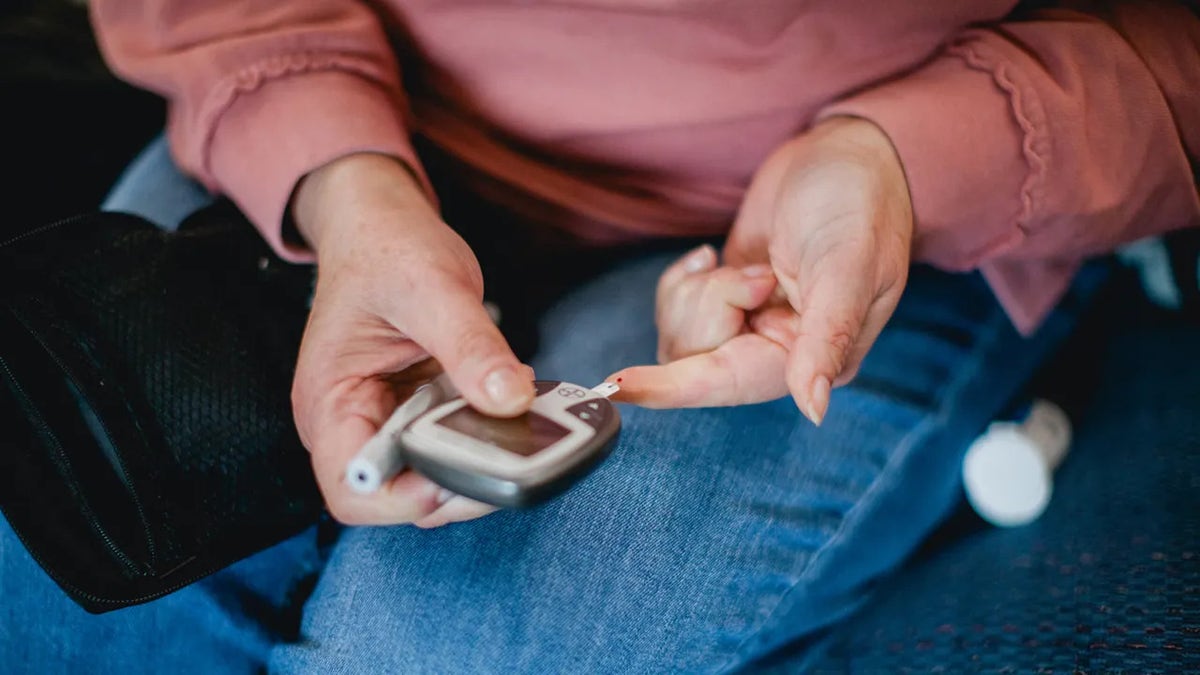

Nearly half of adults worldwide who are living with diabetes don’t even know they have it, leaving millions vulnerable to dangerous complications.
A sweeping new study, published in the journal The Lancet Diabetes & Endocrinology, examined data from more than 200 countries between 2000 and 2023, tracking how well health systems identify, treat and control the condition.
Researchers analyzed how many people with diabetes are undiagnosed, untreated, receiving suboptimal care or achieving optimal blood sugar control, broken down by age, sex, location and year.
CUTTING OUT ALCOHOL AND MEDICATING SOONER COULD PREVENT 'SILENT KILLER,' EXPERTS SAY
The researchers found that about 44% of people aged 15 and older with diabetes remain undiagnosed.
"Many people would not have signs or symptoms until their diabetes is very advanced, and many people are not going to the doctor often or at all for lab work," Tanya Freirich, a registered dietitian nutritionist in North Carolina, told Fox News Digital. (She was not involved in the study.)

Diabetes has been called a "silent epidemic," as millions remain unaware that they have the potentially deadly condition. (iStock)
Most diagnosed patients, roughly 91%, receive medication, but less than half manage to get their blood sugar under control. That means only about one in five people worldwide are effectively managing their disease.
Young people are the most likely to go undiagnosed, despite facing serious long-term risks, such as heart disease, kidney failure, blindness and nerve damage, according to the study.
SUGAR IN DRINKS LINKED TO HIGHER DIABETES RISK THAN THAT IN FOOD, NEW RESEARCH FINDS
Geography plays a powerful role in diagnosis rates. In wealthier countries like the United States and Canada, diagnosis rates are higher, though challenges remain in long-term management of the disease.
In lower-income regions, particularly in parts of sub-Saharan Africa, fewer than one in five people with diabetes are aware they have the condition.

1.3 billion people are expected to be living with diabetes by 2050, and experts say medication alone may not be enough. (iStock)
Lead author Lauryn Stafford, a researcher at the Institute for Health Metrics and Evaluation at the University of Washington, said these numbers should set off alarms for governments and health systems worldwide.
"By 2050, 1.3 billion people are expected to be living with diabetes, and if nearly half don’t know they have a serious and potentially deadly health condition, it could easily become a silent epidemic," she said in a press release.
The study also suggests that treatment itself often falls short. Prescriptions alone don’t control blood sugar, as researchers warn that health systems must also focus on monitoring, education and lifestyle support.
For some people with prediabetes, early treatment as well as moderate lifestyle changes can return blood glucose (blood sugar) levels to a normal range, effectively preventing or delaying type 2 diabetes, according to the American Diabetes Association.

Previous research shows that lifestyle changes like the Mediterranean diet could help prevent diabetes. (iStock)
It is difficult to be exact about the number of people who are undiagnosed, experts say.
"Those are data points that are unable to be confirmed until diagnosed," Frierich said. "While I do not doubt the accuracy of the tool [used in the study], there may be unknown factors that are not included in the model."
The dietitian recommends that everyone has a semi-regular health check.
She also noted that increasing fiber intake with whole, unprocessed, plant-based foods like vegetables and nuts — as well as staying consistently active — can reduce the risk of diabetes and help to regulate blood sugar.
